Fold it, stretch it, build it: biomimicry with Dr. Shu Yang.
What do elephant skin, kirigami, and algae have in common? Dr. Shu Yang explains the material science behind nature’s best …

Training students to create sustainable buildings
One of the greatest contributors to climate change is the built environment. Concrete production alone accounts for a significant share …
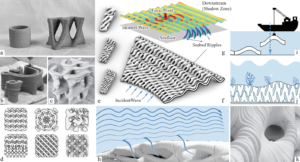
Co-Design Artificial Reef Structures that Help Harness Wave Energy
In the race to power the world with renewable energy, we look to an underutilized resource from the ocean: wave …
Winning the Fast Company’s 2024 WorldChangingIdeas award
We won the Fast Company’s 2024 WorldChangingIdeas award. “E-seeds: Autonomous Self-burying Seed Carriers for Aerial Seeding”, was recognized across four categories: Agriculture …
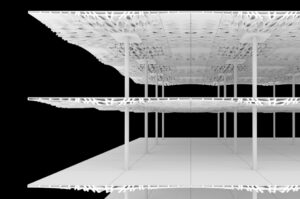
Toward Carbon-negative architecture
A multidisciplinary team of researchers from the Stuart Weitzman School of Design and the School of Engineering and Applied Science …
Shu Yang has been elected 2024 AAAS Fellow
Shu Yang has been elected 2024 AAAS Fellow mong more than 500 researchers honored for their “scientifically and socially distinguished …
Reducing food industry carbon emissions with advanced hybrid desiccant-wheel heat pump system
Aiming to reduce industrial carbon pollution and moving the country toward a net-zero emissions economy by 2050, a team of …
Reducing energy consumption in wood-drying through innovations in desiccant-coated kirigami heat exchangers and heat pump
Drying is an essential part of the product manufacturing industry, which accounts for up to 25% of the national energy …

Yang named “Inventor of the Year” by Penn Center for Innovation
Yang was named as “Inventor of the Year” by Penn Center for Innovation at their annual Celebration of Innovation event …
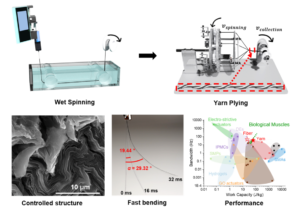
Graphene oxide composite fibers muscle in
Soft materials promise more dexterous, sensitive robotics but soft actuators are limited in strength and power density. Now researchers at …
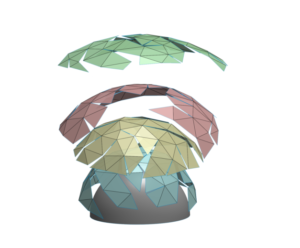
Cut or No Cut: Algorithm for 2D-to-3D Engineering Integrates Art, Nature and Science
The team’s work takes inspiration from kirigami, an East Asian papercutting art, to create a mathematically sound method of cutting …

Turning Buildings into Carbon Storage Structures
The University of Pennsylvania will receive $2.4M in funding from the US Department of Energy Advanced Research Projects Agency-Energy (ARPA-E) …
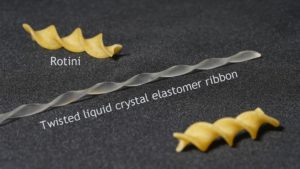
Twisted Soft Robots Navigate Mazes Autonomously
Autonomy is crucial for soft robotics that are constructed of soft materials. It remains challenging to create autonomous soft robots …
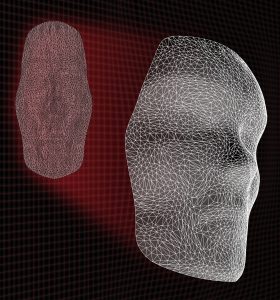
Universal inverse design of surfaces with thin nematic elastomer sheets
The Yang lab and collaborators transform a two-dimension sheets made from liquid crystal elastomers into complex three-dimensional geometries, such as …
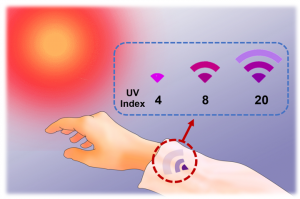
Wearable UV Indicators from Photochromic Fibers and Yarns
Wearable sensors allow for continuous and real-time monitoring of the human health and potential environmental hazards such as ultraviolet (UV) …

Responsive and Foldable Soft Materials
Stimulus-responsive soft materials that can enable folding of a 2D sheet into a 3D object have potential significant applications, including …
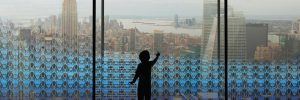
Smart windows
Commonplace as they are, windows are an important piece of technology. Beyond architectural aesthetics, a building’s ecological footprint depends heavily …
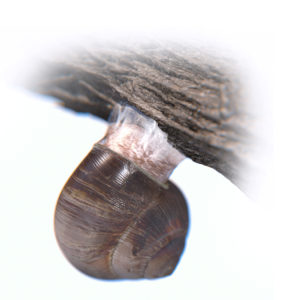
Intrinsically Reversible Superglues via Shape Adaptation Inspired by Snail Epiphragm
We often meet with this dilemma: material’s adhesion could be strong but not reversible, or it is reversible but not …
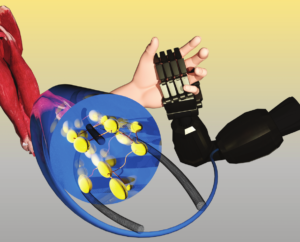
Soft Robots using Muscle-like Composite Actuators
Liquid crystal elastomers (LCEs), known for their reversible and anisotropic deformation, are promising candidates as embedded intelligent actuators in soft …
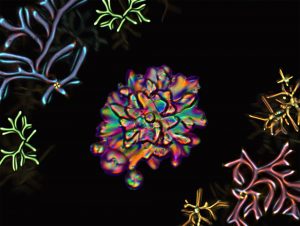
Molecular heterogeneity drives reconfigurable nematic liquid crystal drops
Liquid crystals are composed of rod- or disc-like molecules called mesogens, and, as a result of the alignment of these …
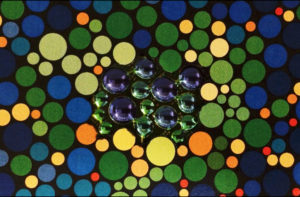
Broadband and Pixelated Camouflage by Exploiting Large Poisson Effect in Main-Chain Chiral Nematic Liquid Crystalline Elastomers
Inspired by cephalopod’s skin, the Yang lab creates an artificial chromatophore that can change colors instantly—from near-infrared to visible to …

Pixelated Broadband Camouflage
Shu Yang of the School of Engineering and Applied Science has developed an artificial chromatophore that can change colors on …
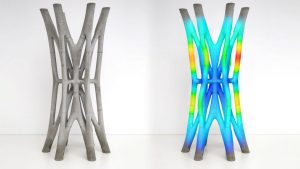
Threading high-performance, self-morphing building blocks across scales toward a sustainable future
Inspired by biological structural materials, Yang, Liang Feng (Penn Engineering, MSE) and Masoud Akbarzadeh (PennDesign, Architecture) have received $4.6M grant from National Science Foundation …
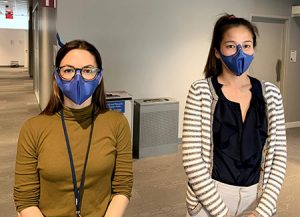
Open Medical (Our action to combat with COVID-19)
A team of medical device developers have come together to create a new respirator design to address the shortage of …

Drops of liquid crystal molecules branch out into strange structures
Researchers made a variety of shapes, including flowers (center) and corals. By changing the ratio of long- to short- rod-like …
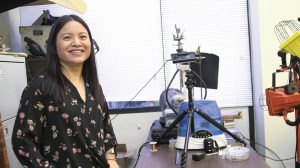
Reducing Energy Use with Building Skins
In the heavily regulated building sector, innovative materials face a major disadvantage: building codes. For this reason, and because climate …
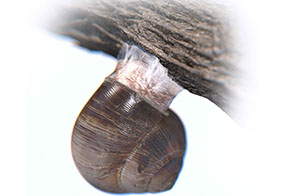
Superstrong, Reversible Adhesive That Works Like Snail Slime
A new study demonstrates a strong, reversible adhesive that uses the same mechanisms of adhesion as snails. When wet, the …

Team Kirigami Won the 1st Place in Penn Engineering Senior Design Competition
Congrats to Emily Spencer and Gray DeSimone who won the 1st place in the Penn Engineering wide senior design competition …
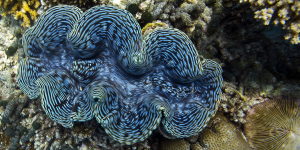
Powering the Future with Giant Clams
In 2014, Shu Yang, of the Materials Science and Engineering, joined School of Arts and Sciences’ biophysicist Alison Sweeney on …

Making Complex 3-D Surfaces with 2-D Sheets
Jiffy pop, an aluminum foil pan full of popcorn kernels and oil, is a staple of camping trips. Because of …

Making Atomic thin sheets stand up for better energy storage
When it comes to cell phones, there are fewer things more frustrating than a short battery life. Researchers at the …
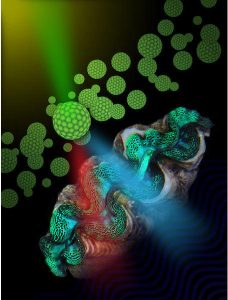
Mimicking Giant Clams to Enhance the Production of Biofuel
Alison Sweeney of the University of Pennsylvania has been studying giant clams. She refer to the clams as “solar transformers” …
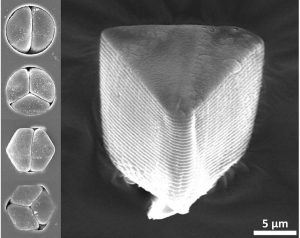
Creating Ultra-lightweight Materials That Expand With Heat
When it comes to taking up room without adding too much weight, the bubble can’t be beat. Because they are …
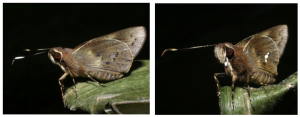
Surprising Insights Into the White Spots on Butterfly Wings
A collaboration between biologists and materials scientists at the University of Pennsylvania is yielding new insights into the wings of …
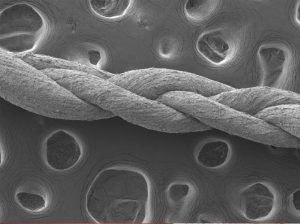
Nanotech garment will gather health information through sweat
Wearable technology requires materials that are both flexible and functional, so developers often look to polymers or to make harder …
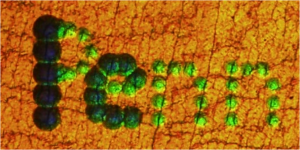
Penn Engineers Design Material That Could Help Diagnose Concussions
The precise link between concussions in sports, especially at the youth level, and traumatic brain injurie by soldiers is still …

Penn Research Team Develops ‘Smart’ Window
Commonplace as they are, windows are an important piece of technology. Beyond architectural aesthetics, a building’s ecological footprint depends heavily …